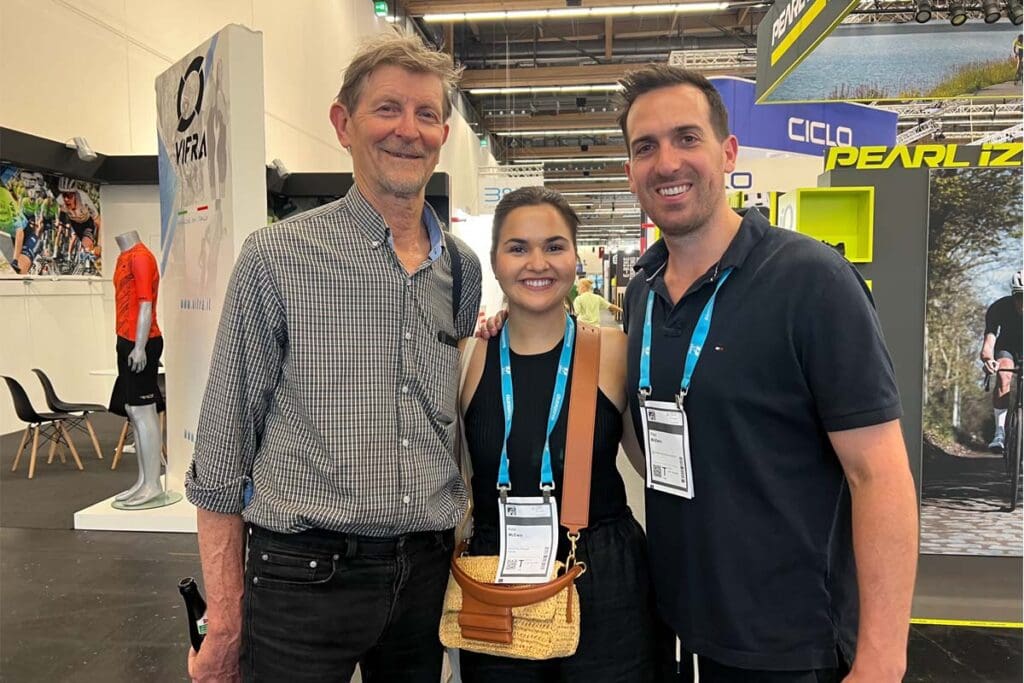Vivente Brings Made In Australia Ambitions to Life

Sheffield, Tasmania
The small Tasmanian dairy town of Sheffield has a new cottage industry, with bike sector stalwart Noel McFarlane launching a touring bike factory in his recently adopted hometown.
The small-scale, two-person operation is the latest chapter for Noel’s long-standing touring brand, Vivente – bringing its production onto Australian shores, focusing on just two models and purely making bikes to order.
“Sticking with just two models makes it a lot easier to market choice within each model,” he said.
“And the only significant difference between the models is one has dropbars and the other is a sit-up version.”
The factory has been two years in the making for Noel, who relocated from Sydney to Sheffield for a return to farming.
It took 18 months to organise all the parts suppliers, then six months building the assembly factory – in between farming lambs, goats and geese and growing walnuts and native timber forests as a carbon sequester.
Noel says it’s a nice stage in his career – producing ‘made in Australia’ bikes, focusing on the higher end of the market, and personally packing each bike for its delivery from the factory.
Each bike retails for around $7,000 and both models are fitted exclusively with Rohloff hubs.
“For each Rohloff bike we sell, we could probably sell four with derailleurs because they are significantly cheaper,” he said.
“However, reliability and durability are especially important for our customers. We are making bikes for people who go all over the world.
“Rohloff hubs are good for a couple of hundred thousand kilometres, with an oil every 5,000km, and the Gates belt drives last for 30,000 km.”
Noel recalls an insight he gained from his tour along WA’s Munda Biddi trail – the world’s longest continuous off-road cycling trail – a couple of years ago.
Each night they would stay in the cabins dotted along the 1,200km route and read previous visitors’ entries in the cabin journals.
“There were varied versions of the comment ‘I’ve been holed up here for two days waiting for someone to bring me a new derailleur because mine got busted by a stick,” he said.
“The thing that really stood out for me is that this is a significant flaw in the bike design because it’s the most vulnerable part of the bike. But it’s never mentioned in the marketing of the bikes these people are riding.
“Also, in the past five years component manufacturers have lost interest in triple crank sets, which are the obvious transmission system for a bike that going to be ridden around the world carrying luggage.
“Instead, Rohloff hubs have a 525% ratio.”
Touring has always been central to Noel’s bike industry career. He was part of a group of students who took up bike touring in the mid-1970s and, faced with a shortage of stores stocking quality bikes – apart from the racing variety – he started Calypso Cycles in North Newtown (a suburb of inner-city Sydney) in 1979.
Calypso pieced together bikes from whatever components and frames were available to Noel and his team at a wholesale level until, in 1981, he established importing company Gemini Bicycles and started bringing in bikes constructed in a factory in Japan.
Their first model was the Gemini Randonneur, which had a design based on the custom-built touring bikes Calypso Cycles had been assembling, and was later renamed the World Randonneur by Vivente Bikes.
Noel’s regular trips to Europe, to attend the Eurobike trade show in Germany and immerse himself in annual bike tours throughout the continent, inspired him to progressively fit the Randonneur range with components previously treated as post-purchase items in Australia.
Dynamo hubs, lights, racks, mudguards and kickstands became part of the offerings as Noel led a maturing Australian touring bike sector.
